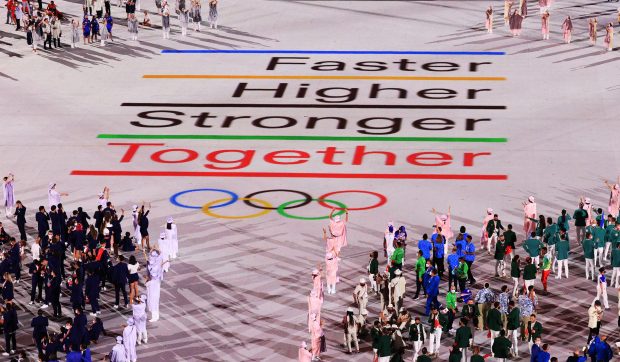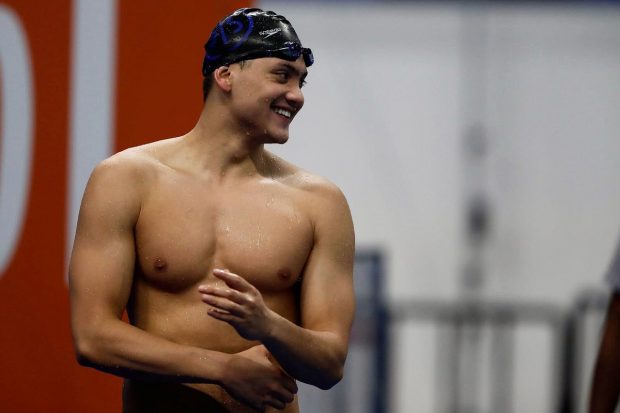[도쿄올림픽① 싱가포르] 역경을 딛고 ‘함께’ 나선 특별한 도전
도쿄올림픽이 막을 내린지 10월 8일로 두달이 지납니다. 코로나19로 1년 연기 끝에 7월 23일 개막한 도쿄올림픽엔 전세계 205개국이 참가해 8월 8일까지 열렸습니다. 아시아에선 아프간을 비롯해 내전 중인 시리아 등 모두 40여개 국가가 참가했습니다. 또 이번 대회에선 1896년 제1회 대회 당시 제정됐던 ‘더 빨리, 더 높이, 더 힘차게’ 모토에 ‘다 함께’(together)를 추가하였습니다. 코로나19 이후 최초의 대규모 국제행사인 도쿄올림픽은 다가올 국제행사에 좋은 선례를 제시한 것으로 평가됩니다. <아시아엔>은 국내에는 잘 알려지지 않은 아시아 국가들의 도쿄올림픽 이야기를 전합니다. <편집자>

[아시아엔=아이반 림 아시아기자협회 명예회장, 싱가포르 <스트레이트타임즈> 전 선임기자] 올림픽은 그동안 ‘더 빨리, 더 높이, 더 힘차게’를 모토로 삼으며 도전정신을 강조해왔다. 그러나 ‘2020 도쿄올림픽’은 ‘함께’(together)라는 단어를 추가해 코로나19 펜데믹에 ‘다 함께’ 맞서는 특별한 도전이라는 의미를 더했다. 그래서인지 이번 개최식에선 코로나19로 인해 안타깝게 목숨을 잃은 사람들을 위해 묵념하는 모습도 포착되었다.
치명적인 감염병이 확산되고 있는 이 시국에도 인류는 역경을 딛고 일어서는 용기를 보여줬다. ‘역경의 올림픽’이라는 달갑지 않은 별명이 붙기도 했으나, 매 경기 최선을 다해준 선수들에게 진심으로 찬사를 보낸다. ‘2020 도쿄 올림픽’은 개인 또는 조국의 영광만을 추구한 대회는 아니었다. 암울한 시기에도 인류에 포용과 삶을 즐거움을 되찾아 주었기 때문이다.
싱가포르는 이번 대회에 12종목, 총 23명으로 이루어진 선수단을 보냈다. 하지만 성적은 다소 아쉬웠다. 2008년 베이징 올림픽과 2012년 런던 올림픽에서 은메달을 딴 여자 탁구 펑 티엔웨이(Feng Tianwei)와 유 멩유(Yu Mengyu) 선수가 메달을 따내지 못했으며, 수영 유망주들도 100m 접영 4강에서 탈락하고 말았다. 특히 수영의 조셉 스쿨링(Joseph Schooling) 선수는 지난 2016년 리우 올림픽 100m 접영 종목에서 싱가포르 첫 번째 금메달을 따낸 기록이 있다. 그는 이번 올림픽에서 2연패를 거둘 것이라는 기대를 한 몸에 받았으나 결승에 진출하지 못했다.
경기 직후 스쿨링에게 수많은 비난이 쏟아졌지만, 그 이면에는 슬픈 사연이 있었다. 그의 부친이 암 투병으로 위중한 상태였던 것이다. 그럼에도 스쿨링 선수는 마음을 다잡고 경기에 임하기 위해 필사적으로 노력했다. 그는 이를 변명으로 삼는 대신 내년 세계수영선수권대회, 아시안게임, 영연방대회에서 더 좋은 성적을 내겠다고 굳게 다짐했다.
이번 올림픽은 전 지구적인 관점에서 보면 역경을 딛고 일어선 대회였지만, 미국과 중국은 스포츠를 통해 패권을 다투기도 했다. ‘뉴욕타임즈’는 8월 3일 중국이 여러 경기에서 승리한 것을 “공장에서 물건을 찍어내 듯 최고의 선수들을 배출하는 소련의 방식(Soviet model)을 따라한 결과”라고 묘사하며 신경전을 벌였다. 폐회일 기준으로 중국은 총 88개 메달 중 38개의 금메달을 따냈고, 미국은 113 중 39개, 그리고 개최국 일본은 58개 중 27개의 금메달을 따냈다. 1988년 서울 올림픽에서 금메달 5개를 딴 중국은 지난 30여년간 괄목할 만한 성장을 보여줬다.

The Adversity Games
Ivan Lim Honorary President of AJA, Singapore
The Olympics have always been about the challenges: Faster, higher, and stronger. This time,’Together’ has been added to the Tokyo 2020 games motto. It highlighted the special challenge posed by the raging Covid-19 pandemic.
A moment of silence was observed at the opening ceremony for those who had succumbed to the Coronavirus.
Going ahead with the Olympic Games in the face of danger faced by the deadly pathogen virus speaks of courage in adversity.
Kudos for the athletes who pressed on with what may be seen as the Adversity Games?cocooned within the ’safe haven’ of the Olympic Village while outside its cases erupted.
Whether it is for personal glory or country, Tokyo 2020 Games has lifted the world up from gloom to the gungho spirit of embracing and joy of living.
That’s how Singaporeans keep up our spirits and cheer for our 23 national athletes competing in 12 sports amid a state of heightened alert against the Delta variant.
Alas, Team Singapore ran into adversity. Our medal-hopeful paddlers, Feng Tianwei (who had won a silver and two bronzes in 2008 and 2012) and Yu Mengyu missed medals in Tokyo 2020. Also, our promising swimmers Joseph Schooling and Quah Zheng Wen also failed to qualify for 100m fly semi-finals.
Schooling, the Republic first-ever gold medallist in 100m butterfly in Rio, was defending his title in the 100m butterfly. All eyes were on him for a repeat victory. But he uncharacteristically did not make the heats final. In defeat, Schooling received brickbats from critics for whom winning is everything. Little did they know of the former champion’s adversity.
Schooling had apparently strove to keep his spirits up knowing his father Colin was being treated for cancer.
He was competing under adversity. True to form, Schooling did not cite it as an excuse. Instead, he has resolved to push on and do better at next year’s World Swimming Championships, Asian Games and Commonwealth Games.
At the international level, Tokyo 2020 may be viewed as the Adversarial Games, the sporting rivalry carried into the jostling for supremacy between the United States and China.
This is reflected in a New York Times updated report on Aug 3 that described China’s victories in Tokyo 2020 as an outcome of a Soviet model of churning out top athletes on an assembly line.
The medal tally today (Aug 8) shows China with 38 golds out of a total haul of 88; US with 39 out of 113 medals, and host Japan 27 out of 58. In 1988, China won only five.





